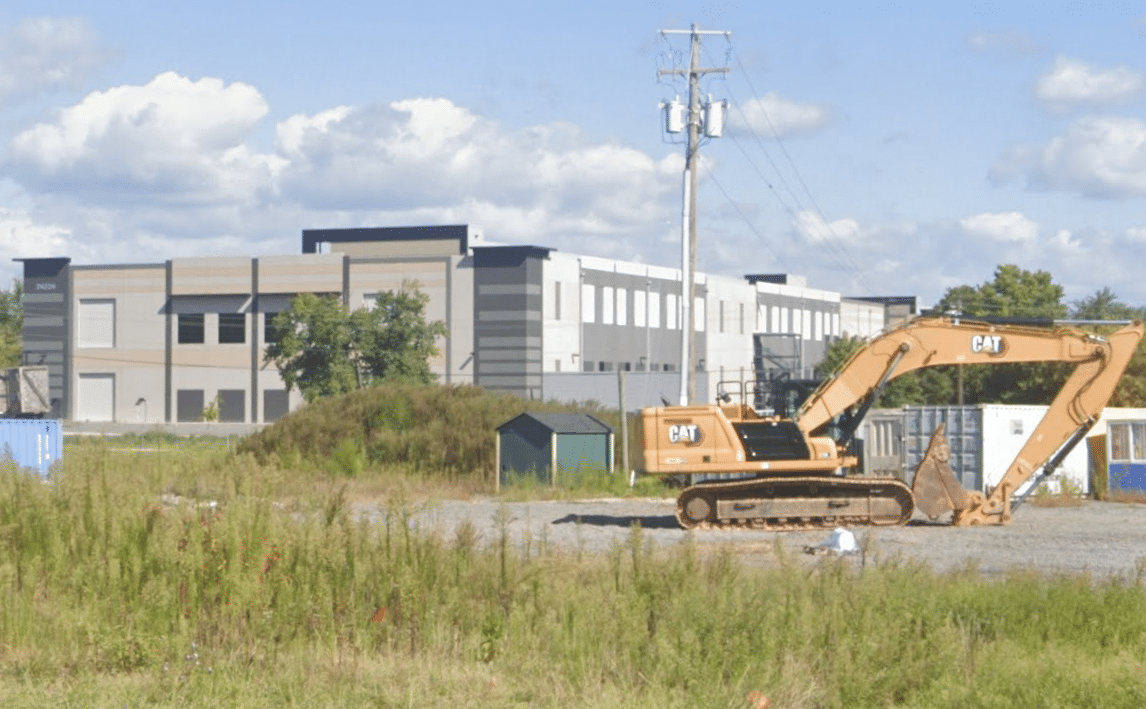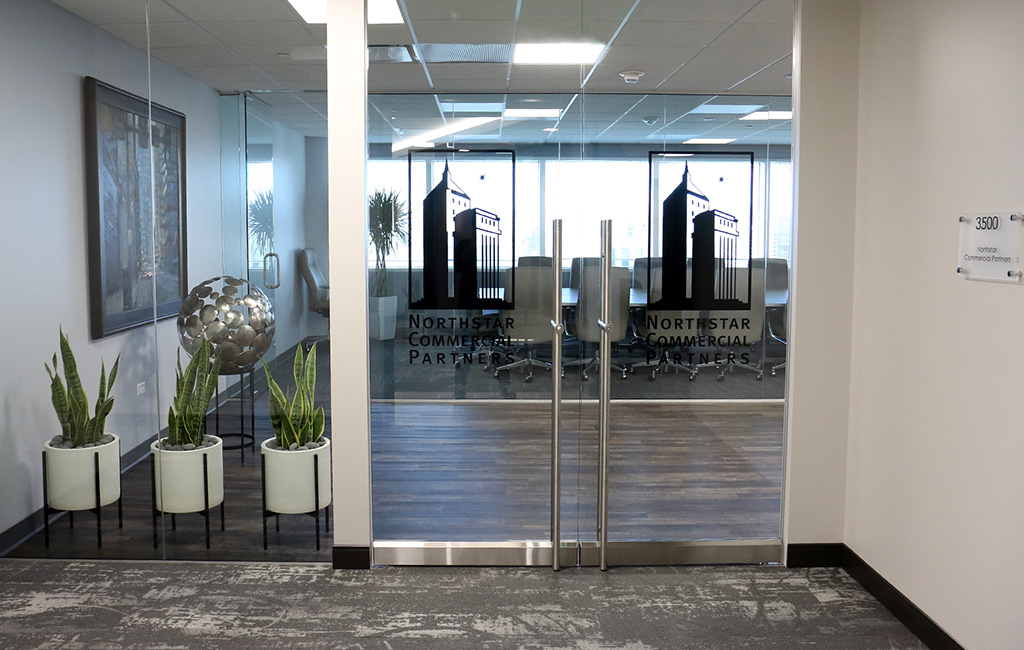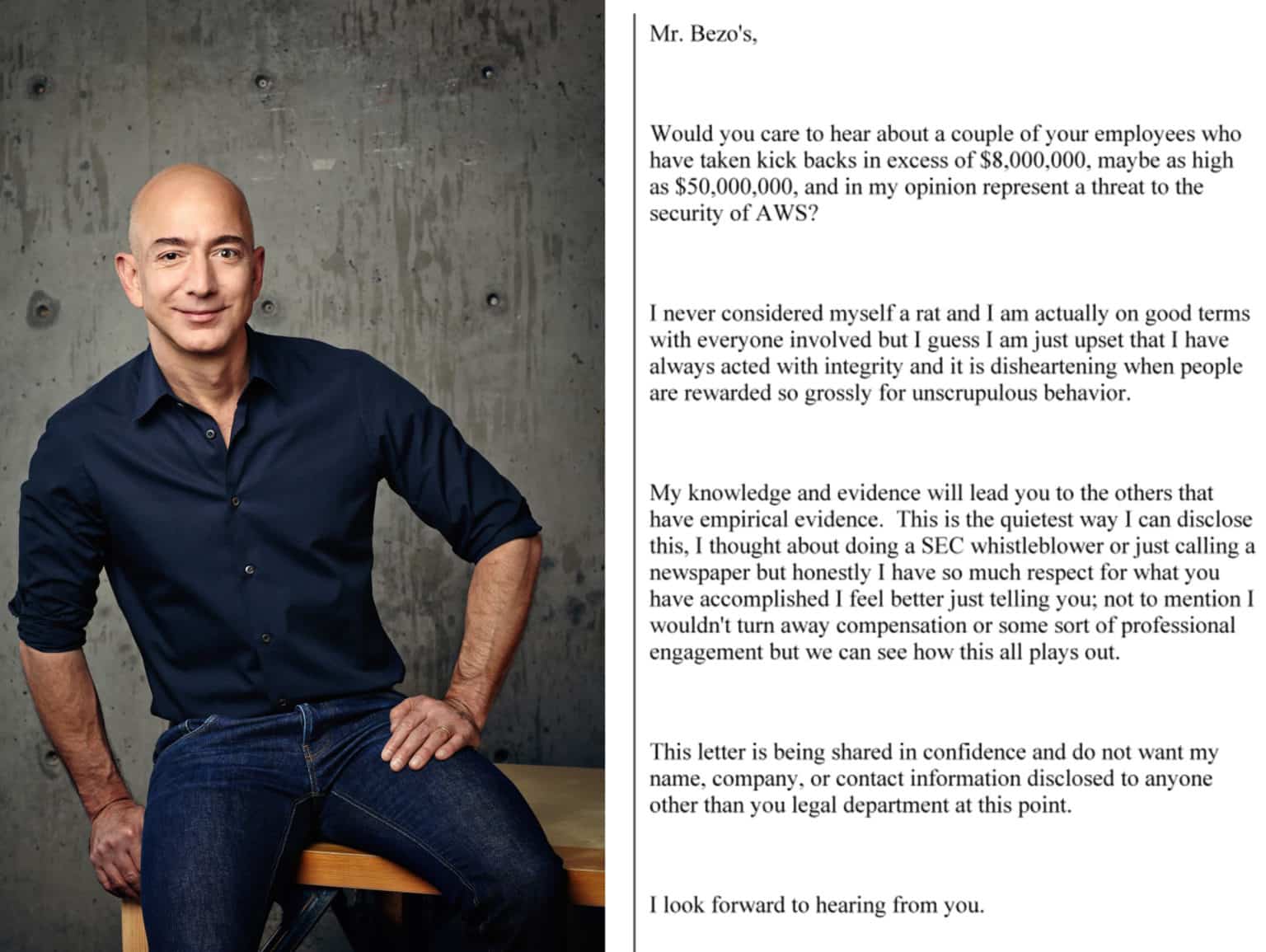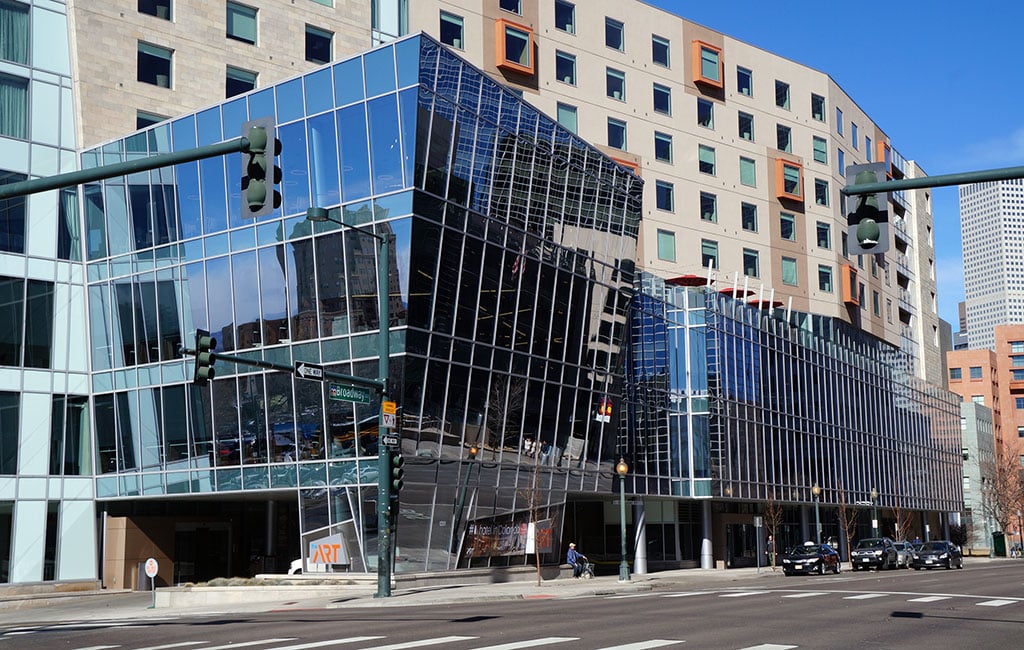
Brian Watson owns the development firm Northstar Commercial Partners. (Courtesy photo)
In spring 2020, Denver developer Brian Watson was sued by Amazon, and told by FBI agents he should expect to be criminally indicted.
It related to work he’d been doing in Virginia, developing data centers for Seattle-based Amazon.
Four years later, the threat of prosecution has passed. The Amazon lawsuit has been whittled down, although that decision is being appealed, and its core allegation remains unresolved. And Watson’s firm Northstar Commercial Partners — and his lifestyle — is a shell of what it once was.
The lawsuit and criminal investigation “destroyed his life’s work, ruined his reputation, and extinguished his ability to earn a living,” Watson said in a new lawsuit he filed this month.
The company most responsible for that, according to Watson, is not Amazon — but rather IPI Partners, the firm that helped finance Northstar’s data center deals in Virginia.
In the lawsuit filed in federal court in Colorado, Watson for the first time publicly outlines what he believes prompted the legal battle that has consumed his last four years.
“That pleading lays out a nice narrative about how Brian sees what happened to him,” said attorney Stan Garnett of Garnett Powell Maximon Barlow & Farbes, who represents Watson in the Amazon lawsuit.
Watson accuses IPI — which is linked to Silicon Valley elite, and this month agreed to be acquired for $1 billion — of executing “a Mafia-like scheme” to push Watson out of his lucrative foray into an up-and-coming industry “all for the sake of earning more fees for itself and a higher rate of return for its billionaire investors.”
IPI did so, Watson claims, in order to benefit another Denver-based firm, called Stack Infrastructure.
Watson says IPI’s efforts involved witness tampering. And perjury. And bribery. He says the company violated the federal Racketeer Influenced and Corrupt Organizations Act, which targets organized crime and is known as RICO. That’s the same thing that Amazon accused Watson of violating in its 2020 lawsuit.
“IPI was relentless in its campaign against Mr. Watson and successfully encouraged the DOJ and Amazon to pursue Mr. Watson,” Watson’s lawsuit states, referring to the U.S. Department of Justice.
Stack Infrastructure did not respond to requests for comment from BusinessDen. IPI Partners declined to comment.

An Amazon data center in Loudon County in northern Virginia. (Google Maps)
A joint venture, after unusual due diligence
Watson was introduced to Amazon in 2017 by a friend, Christian Kirschner, whose brother Casey worked there. The company ultimately picked Northstar, which Watson fully owns, to build multiple data centers in Virginia for Amazon Web Services, or AWS.
Given the size of the project, Watson sought a partner to help fund it. He chose Chicago-based IPI Partners, a joint venture of two firms called Iconiq Capital and Iron Point Partners that was formed in 2016. Iconiq invests on behalf of wealthy individuals in the tech sector, including Meta founder Mark Zuckerberg.
IPI had recently established a $1.5 billion fund to invest in data center projects, making it a natural choice. But Watson says he also chose IPI because the company didn’t appear interested in in developing data centers itself, and thus becoming a competitor, “but, rather, only acting as an equity provider.”
Earlier this month, IPI agreed to be acquired by a firm called Blue Owl Capital for $1 billion. In its announcement, Blue Owl called IPI “one of the largest private US-based data center investors with a portfolio of 82 data centers.”
But IPI was more of a fledgling operation when Watson partnered with the company, according to Watson. Notably, his lawsuit claims, the company did not have a development arm at the time, or a relationship with Amazon, the largest user of data centers.
In March 2018, IPI and Northstar created a joint venture for the Virginia projects, according to Watson’s lawsuit. Amazon eventually chose to build nine data centers across three parcels, according to Watson. Those structures, which Amazon would lease, would collectively be worth hundreds of millions, and Amazon would spend billions to build out the interiors.
Before the firms paired up, IPI conducted due diligence. IPI executives Matt A’Hearn and Luke Gilpin visited Colorado. Watson took Gilpin to Northstar’s suite to watch a Denver Broncos game.
Due diligence is standard in any deal. But Watson is now skeptical of some things IPI sought to learn, and that its executives wanted to get to know key Northstar employees.
“The information requested went beyond normal due diligence for an equity partner and would later prove important to IPI in taking the data center development, ownership, and management business from Northstar and building its own real estate development and management company, STACK Infrastructure,” his lawsuit states.

The entrance to Northstar’s former office at 1999 Broadway in downtown Denver. (Courtesy Northstar Commercial Partners)
Watson sees multiple IPI efforts to push him out
Four data centers had been completed by the time Watson says IPI, realizing the lucrative nature of these projects, “began its campaign to usurp and wrongfully oust Mr. Watson and the Northstar Entities from their partnership and their relationship with Amazon/AWS.”
In summer 2019, Watson claims, IPI offered to buy Northstar out of their joint venture for $20 million, and said they’d also need to hire some Northstar employees. Watson declined.
Watson says IPI also approached Amazon employee Carl Nelson, Casey Kirschner’s boss, directly about trying to do deals with the company. And Watson claims that IPI talked to Northstar execs Kyle Ramstetter and Will Camenson directly without Watson’s knowledge.
Ramstetter and Camenson ultimately did a land flip deal on their own with Amazon in Virginia that netted $18 million in profit. Watson says he fired the men when he learned of the deal after it was completed. Watson says he then asked Tim Lorman, Northstar’s chief operating officer, and others to replace them on the Amazon account.
Also in 2019, IPI formed Stack Infrastructure, a company that would develop data centers. It chose downtown Denver for its headquarters. Watson claims IPI “aggressively sought an opportunity to seize future projects for themselves and investors in the IPI funds by cutting out Mr. Watson and Northstar as the middleman.”
That’s when, Watson claims, that IPI looked at the potential for exploiting a fairly standard morals clause in the joint venture contract.
“IPI concluded that it would be able to permanently remove Mr. Watson were it to try and secure a felony conviction of him, or at least an embarrassing and debilitating investigation, by the federal government, as this was the only way they could remove Mr. Watson, as the assets were doing so well financially,” his lawsuit states.

The email at right was sent to Amazon’s Jeff Bezos in late 2019. (Courtesy of Amazon/court records)
Amazon, IPI scrutinize payments to trust
On April 2, 2020, FBI agents showed up at Watson’s mansion in Cherry Hills Village, which he would later sell for $8.5 million. They seized his computer and phone, and told him to expect an indictment. He separately received notice from IPI that the company was booting Northstar from the joint venture.
Watson sent an email the same day to a host of associates, describing the visit and its apparent connection to the Amazon deals. The subject line was “Last Words.” Watson said he planned to use a firearm to end his life, although he did not.
Later that month, Amazon sued Watson in federal court in Virginia, accusing him of “a significant fraud and kickback scheme.”
The still-unresolved litigation revolves around millions of dollars that Watson’s firm paid to a trust set up by Christian Kirschner, who had introduced Watson to his brother at Amazon. The majority of those funds were transferred from the trust to Casey Kirschner and his boss Nelson.
Amazon says Watson’s payments to its employees were kickbacks. Watson says the payments were referral fees, paid to reward Christian Kirschner for helping Northstar land business. Such fees are common in the commercial real estate sector. Watson has said he was unaware funds were passed on to Nelson and Casey Kirschner, and that he sought to ensure that would not be the case.
Amazon said in its lawsuit it was initially alerted to the arrangement by Danny Mulcahy, a former Northstar employee who emailed Jeff Bezos in December 2019. Watson filed a separate lawsuit against Mulcahy last month.
Lorman, Northstar’s chief operating officer, also raised concerns about the arrangement in January 2020, although he went directly to IPI. Watson’s lawsuit concludes that IPI “was a driving force behind” Lorman’s actions.
Upon learning about the payments, IPI didn’t contact Watson to get an explanation, according to his lawsuit this month.
“Instead, IPI went to work twisting Lorman’s information into a false story to dupe the U.S. Attorney into pursuing Mr. Watson,” Watson’s lawsuit states.
IPI also flew Ramstetter, the fired Northstar executive, to Chicago. Watson says IPI pressured Ramstetter “to concoct false allegations” and coached him on what to tell authorities. In a recorded February phone call with Carl Nelson’s wife Amy, Ramstetter indicated that IPI was behind Watson’s legal troubles.
“The vendetta of a billion-dollar Mark Zuckerberg fund was out to get Brian,” Ramstetter said in the call.
Ramstetter also said in the call that “everything was out of my control” and he was “being threatened with f***ing everything.”
“If somebody put me on the stand and said, ‘Did somebody want to pay you X millions of dollars to come work for them and to take over this Amazon relationship if X and Y and Z happened?’ I would say, ‘Yes, and here’s how it happened,’” Ramstetter said in the call.
Watson’s lawsuit alleges this amounts to bribery and witness tampering, practices “reminiscent of the infamous strong-arm, mafia crime practices of Chicago, where IPI is based.”

The glass Offices at the Art building at 1221 N. Broadway. Watson’s firm once owned part of it, but a receiver overseeing the company sold the stake earlier this year. (BusinessDen file)
Receivership, vacated guilty pleas and lots of lawsuits
Watson was never charged with a crime.
In late 2021, he lost control of his company and his personal finances when Amazon successfully requested a receiver be appointed to oversee both. He didn’t regain it until May of this year.
In March 2023, Ramstetter and Christian Kirschner pleaded guilty to felony wire fraud in connection with the payments, saying there was a kickback scheme and they helped facilitate it.
A month later, however, after years of rulings that went against Watson, he scored a partial victory. A judge dismissed the bulk of Amazon’s lawsuit against him, leaving just two claims.
In January of this year, the federal government did an about-face, and vacated the guilty pleas submitted by Ramstetter and Christian Kirschner.
But Amazon has appealed the dismissal of all but two claims against Watson — arguments are scheduled for this week — meaning Watson’s latest lawsuit was filed with the question of whether he knowingly paid kickbacks still pending.
“We’re a long ways from being done,” Garnett, an attorney for Watson, told BusinessDen last week.
While Watson points to Ramstetter’s recorded comments in the February phone call, Amazon has pointed in its lawsuit to recorded comments that Ramstetter made to Watson in 2019, before the criminal investigation began, saying “What we did for Amazon — that’s FBI.”
The company has also noted that Casey Kirschner handwrote a statement for the FBI in April 2020 in which he said he “Northstar paid kickbacks” and that “Northstar was the only developer who paid Carl Nelson and me.”
This month’s lawsuit against IPI isn’t Watson’s first. He sued the company in state court in Delaware in late 2020. In mid-2022, a judge rejected IPI’s bid to get that case dismissed. That lawsuit is currently stayed, pending the outcome of Amazon’s lawsuit in Virginia.
Watson’s Delaware lawsuit against IPI alleges breach of contract. The new one filed in Colorado makes a host of claims, from RICO violations to unjust enrichment to defamation and infliction of emotional distress.
Garnett’s firm, which is defending Watson in the Amazon lawsuit and representing him in the Delaware suit against IPI, did not author the latest lawsuit. Instead, Watson is represented by Greenspoon Marder attorneys Brant Kuehn and Alan Schindler.
“The receivership and the DOJ investigation are over and fresh evidence has leaked, including the new witness admissions flagged in the complaint,” Kuehn said of the decision to file now.
Watson’s lawsuit requests damages of at least $2 billion — the same figure he requested when he sued Mulcahy last month. The law firm Jones & Keller is representing Watson in that case.
Separate from the Amazon deals, the U.S. Securities and Exchange Commission has accused Watson of securities fraud. Watson has denied wrongdoing and is also being represented by Jones & Keller in that case.

Brian Watson owns the development firm Northstar Commercial Partners. (Courtesy photo)
In spring 2020, Denver developer Brian Watson was sued by Amazon, and told by FBI agents he should expect to be criminally indicted.
It related to work he’d been doing in Virginia, developing data centers for Seattle-based Amazon.
Four years later, the threat of prosecution has passed. The Amazon lawsuit has been whittled down, although that decision is being appealed, and its core allegation remains unresolved. And Watson’s firm Northstar Commercial Partners — and his lifestyle — is a shell of what it once was.
The lawsuit and criminal investigation “destroyed his life’s work, ruined his reputation, and extinguished his ability to earn a living,” Watson said in a new lawsuit he filed this month.
The company most responsible for that, according to Watson, is not Amazon — but rather IPI Partners, the firm that helped finance Northstar’s data center deals in Virginia.
In the lawsuit filed in federal court in Colorado, Watson for the first time publicly outlines what he believes prompted the legal battle that has consumed his last four years.
“That pleading lays out a nice narrative about how Brian sees what happened to him,” said attorney Stan Garnett of Garnett Powell Maximon Barlow & Farbes, who represents Watson in the Amazon lawsuit.
Watson accuses IPI — which is linked to Silicon Valley elite, and this month agreed to be acquired for $1 billion — of executing “a Mafia-like scheme” to push Watson out of his lucrative foray into an up-and-coming industry “all for the sake of earning more fees for itself and a higher rate of return for its billionaire investors.”
IPI did so, Watson claims, in order to benefit another Denver-based firm, called Stack Infrastructure.
Watson says IPI’s efforts involved witness tampering. And perjury. And bribery. He says the company violated the federal Racketeer Influenced and Corrupt Organizations Act, which targets organized crime and is known as RICO. That’s the same thing that Amazon accused Watson of violating in its 2020 lawsuit.
“IPI was relentless in its campaign against Mr. Watson and successfully encouraged the DOJ and Amazon to pursue Mr. Watson,” Watson’s lawsuit states, referring to the U.S. Department of Justice.
Stack Infrastructure did not respond to requests for comment from BusinessDen. IPI Partners declined to comment.

An Amazon data center in Loudon County in northern Virginia. (Google Maps)
A joint venture, after unusual due diligence
Watson was introduced to Amazon in 2017 by a friend, Christian Kirschner, whose brother Casey worked there. The company ultimately picked Northstar, which Watson fully owns, to build multiple data centers in Virginia for Amazon Web Services, or AWS.
Given the size of the project, Watson sought a partner to help fund it. He chose Chicago-based IPI Partners, a joint venture of two firms called Iconiq Capital and Iron Point Partners that was formed in 2016. Iconiq invests on behalf of wealthy individuals in the tech sector, including Meta founder Mark Zuckerberg.
IPI had recently established a $1.5 billion fund to invest in data center projects, making it a natural choice. But Watson says he also chose IPI because the company didn’t appear interested in in developing data centers itself, and thus becoming a competitor, “but, rather, only acting as an equity provider.”
Earlier this month, IPI agreed to be acquired by a firm called Blue Owl Capital for $1 billion. In its announcement, Blue Owl called IPI “one of the largest private US-based data center investors with a portfolio of 82 data centers.”
But IPI was more of a fledgling operation when Watson partnered with the company, according to Watson. Notably, his lawsuit claims, the company did not have a development arm at the time, or a relationship with Amazon, the largest user of data centers.
In March 2018, IPI and Northstar created a joint venture for the Virginia projects, according to Watson’s lawsuit. Amazon eventually chose to build nine data centers across three parcels, according to Watson. Those structures, which Amazon would lease, would collectively be worth hundreds of millions, and Amazon would spend billions to build out the interiors.
Before the firms paired up, IPI conducted due diligence. IPI executives Matt A’Hearn and Luke Gilpin visited Colorado. Watson took Gilpin to Northstar’s suite to watch a Denver Broncos game.
Due diligence is standard in any deal. But Watson is now skeptical of some things IPI sought to learn, and that its executives wanted to get to know key Northstar employees.
“The information requested went beyond normal due diligence for an equity partner and would later prove important to IPI in taking the data center development, ownership, and management business from Northstar and building its own real estate development and management company, STACK Infrastructure,” his lawsuit states.

The entrance to Northstar’s former office at 1999 Broadway in downtown Denver. (Courtesy Northstar Commercial Partners)
Watson sees multiple IPI efforts to push him out
Four data centers had been completed by the time Watson says IPI, realizing the lucrative nature of these projects, “began its campaign to usurp and wrongfully oust Mr. Watson and the Northstar Entities from their partnership and their relationship with Amazon/AWS.”
In summer 2019, Watson claims, IPI offered to buy Northstar out of their joint venture for $20 million, and said they’d also need to hire some Northstar employees. Watson declined.
Watson says IPI also approached Amazon employee Carl Nelson, Casey Kirschner’s boss, directly about trying to do deals with the company. And Watson claims that IPI talked to Northstar execs Kyle Ramstetter and Will Camenson directly without Watson’s knowledge.
Ramstetter and Camenson ultimately did a land flip deal on their own with Amazon in Virginia that netted $18 million in profit. Watson says he fired the men when he learned of the deal after it was completed. Watson says he then asked Tim Lorman, Northstar’s chief operating officer, and others to replace them on the Amazon account.
Also in 2019, IPI formed Stack Infrastructure, a company that would develop data centers. It chose downtown Denver for its headquarters. Watson claims IPI “aggressively sought an opportunity to seize future projects for themselves and investors in the IPI funds by cutting out Mr. Watson and Northstar as the middleman.”
That’s when, Watson claims, that IPI looked at the potential for exploiting a fairly standard morals clause in the joint venture contract.
“IPI concluded that it would be able to permanently remove Mr. Watson were it to try and secure a felony conviction of him, or at least an embarrassing and debilitating investigation, by the federal government, as this was the only way they could remove Mr. Watson, as the assets were doing so well financially,” his lawsuit states.

The email at right was sent to Amazon’s Jeff Bezos in late 2019. (Courtesy of Amazon/court records)
Amazon, IPI scrutinize payments to trust
On April 2, 2020, FBI agents showed up at Watson’s mansion in Cherry Hills Village, which he would later sell for $8.5 million. They seized his computer and phone, and told him to expect an indictment. He separately received notice from IPI that the company was booting Northstar from the joint venture.
Watson sent an email the same day to a host of associates, describing the visit and its apparent connection to the Amazon deals. The subject line was “Last Words.” Watson said he planned to use a firearm to end his life, although he did not.
Later that month, Amazon sued Watson in federal court in Virginia, accusing him of “a significant fraud and kickback scheme.”
The still-unresolved litigation revolves around millions of dollars that Watson’s firm paid to a trust set up by Christian Kirschner, who had introduced Watson to his brother at Amazon. The majority of those funds were transferred from the trust to Casey Kirschner and his boss Nelson.
Amazon says Watson’s payments to its employees were kickbacks. Watson says the payments were referral fees, paid to reward Christian Kirschner for helping Northstar land business. Such fees are common in the commercial real estate sector. Watson has said he was unaware funds were passed on to Nelson and Casey Kirschner, and that he sought to ensure that would not be the case.
Amazon said in its lawsuit it was initially alerted to the arrangement by Danny Mulcahy, a former Northstar employee who emailed Jeff Bezos in December 2019. Watson filed a separate lawsuit against Mulcahy last month.
Lorman, Northstar’s chief operating officer, also raised concerns about the arrangement in January 2020, although he went directly to IPI. Watson’s lawsuit concludes that IPI “was a driving force behind” Lorman’s actions.
Upon learning about the payments, IPI didn’t contact Watson to get an explanation, according to his lawsuit this month.
“Instead, IPI went to work twisting Lorman’s information into a false story to dupe the U.S. Attorney into pursuing Mr. Watson,” Watson’s lawsuit states.
IPI also flew Ramstetter, the fired Northstar executive, to Chicago. Watson says IPI pressured Ramstetter “to concoct false allegations” and coached him on what to tell authorities. In a recorded February phone call with Carl Nelson’s wife Amy, Ramstetter indicated that IPI was behind Watson’s legal troubles.
“The vendetta of a billion-dollar Mark Zuckerberg fund was out to get Brian,” Ramstetter said in the call.
Ramstetter also said in the call that “everything was out of my control” and he was “being threatened with f***ing everything.”
“If somebody put me on the stand and said, ‘Did somebody want to pay you X millions of dollars to come work for them and to take over this Amazon relationship if X and Y and Z happened?’ I would say, ‘Yes, and here’s how it happened,’” Ramstetter said in the call.
Watson’s lawsuit alleges this amounts to bribery and witness tampering, practices “reminiscent of the infamous strong-arm, mafia crime practices of Chicago, where IPI is based.”

The glass Offices at the Art building at 1221 N. Broadway. Watson’s firm once owned part of it, but a receiver overseeing the company sold the stake earlier this year. (BusinessDen file)
Receivership, vacated guilty pleas and lots of lawsuits
Watson was never charged with a crime.
In late 2021, he lost control of his company and his personal finances when Amazon successfully requested a receiver be appointed to oversee both. He didn’t regain it until May of this year.
In March 2023, Ramstetter and Christian Kirschner pleaded guilty to felony wire fraud in connection with the payments, saying there was a kickback scheme and they helped facilitate it.
A month later, however, after years of rulings that went against Watson, he scored a partial victory. A judge dismissed the bulk of Amazon’s lawsuit against him, leaving just two claims.
In January of this year, the federal government did an about-face, and vacated the guilty pleas submitted by Ramstetter and Christian Kirschner.
But Amazon has appealed the dismissal of all but two claims against Watson — arguments are scheduled for this week — meaning Watson’s latest lawsuit was filed with the question of whether he knowingly paid kickbacks still pending.
“We’re a long ways from being done,” Garnett, an attorney for Watson, told BusinessDen last week.
While Watson points to Ramstetter’s recorded comments in the February phone call, Amazon has pointed in its lawsuit to recorded comments that Ramstetter made to Watson in 2019, before the criminal investigation began, saying “What we did for Amazon — that’s FBI.”
The company has also noted that Casey Kirschner handwrote a statement for the FBI in April 2020 in which he said he “Northstar paid kickbacks” and that “Northstar was the only developer who paid Carl Nelson and me.”
This month’s lawsuit against IPI isn’t Watson’s first. He sued the company in state court in Delaware in late 2020. In mid-2022, a judge rejected IPI’s bid to get that case dismissed. That lawsuit is currently stayed, pending the outcome of Amazon’s lawsuit in Virginia.
Watson’s Delaware lawsuit against IPI alleges breach of contract. The new one filed in Colorado makes a host of claims, from RICO violations to unjust enrichment to defamation and infliction of emotional distress.
Garnett’s firm, which is defending Watson in the Amazon lawsuit and representing him in the Delaware suit against IPI, did not author the latest lawsuit. Instead, Watson is represented by Greenspoon Marder attorneys Brant Kuehn and Alan Schindler.
“The receivership and the DOJ investigation are over and fresh evidence has leaked, including the new witness admissions flagged in the complaint,” Kuehn said of the decision to file now.
Watson’s lawsuit requests damages of at least $2 billion — the same figure he requested when he sued Mulcahy last month. The law firm Jones & Keller is representing Watson in that case.
Separate from the Amazon deals, the U.S. Securities and Exchange Commission has accused Watson of securities fraud. Watson has denied wrongdoing and is also being represented by Jones & Keller in that case.


